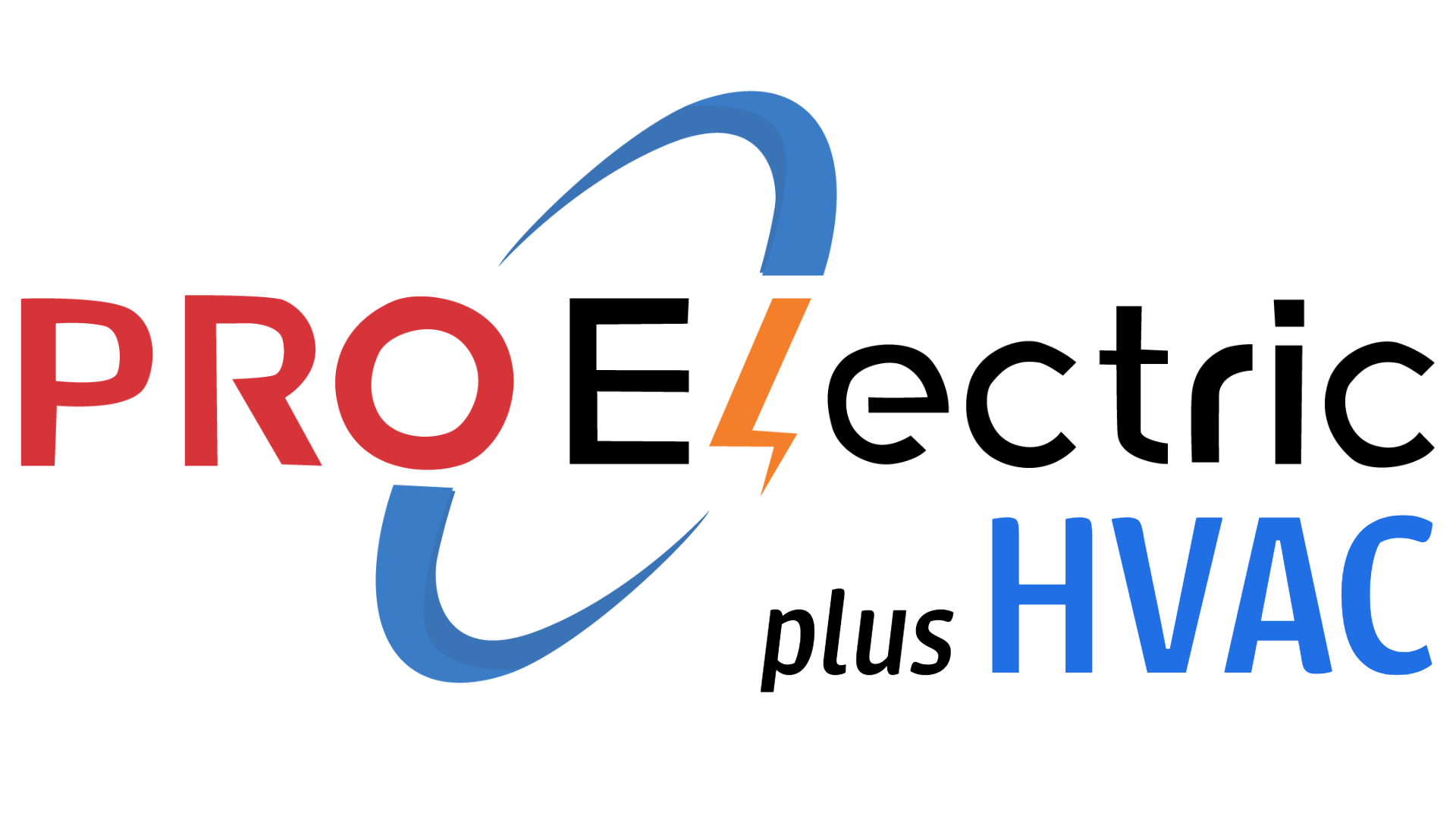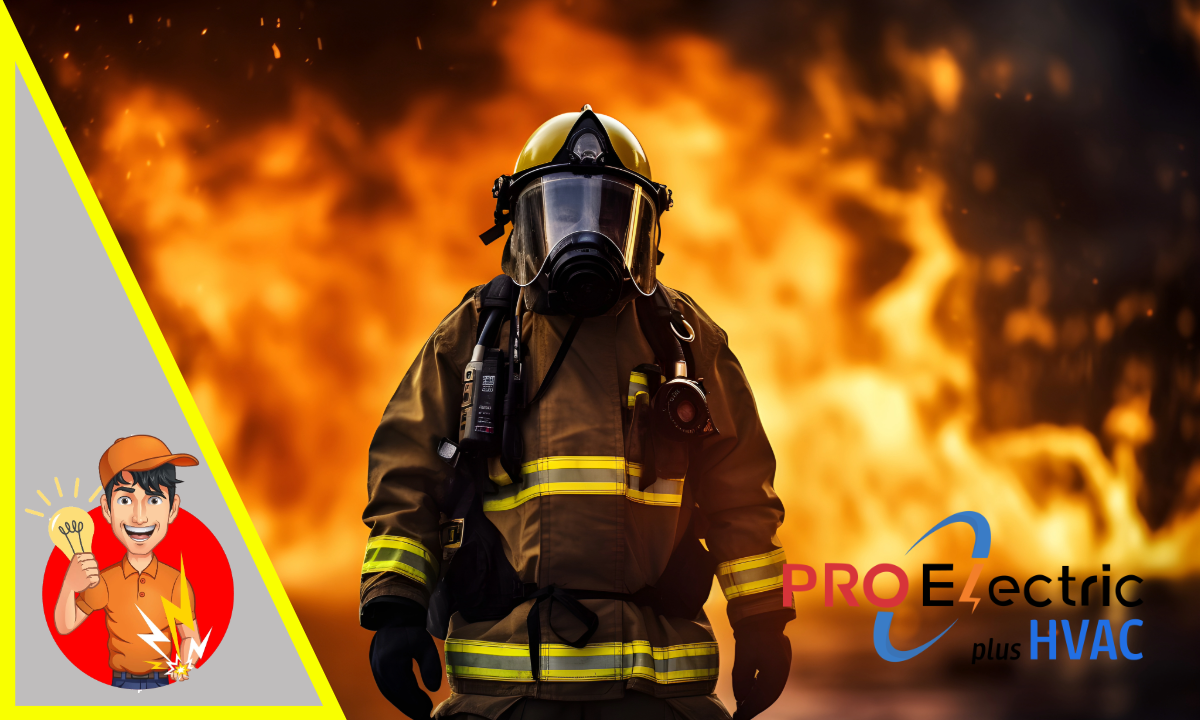By Peter, Master Electrician | PRO Electric plus HVAC
SUMMARY
If your Fairfax County home doesn’t have an exterior emergency shut-off switch, you’re not up to code, and that could cost you big. Fire code now requires an outdoor disconnect on all residential properties for first responder safety. Skipping it can mean failed inspections, fines, insurance denial, or worse. PRO Electric plus HVAC’s Master Electricians handle everything fast, compliant, and safe so you don’t get burned by code violations or emergencies.
Fairfax County Exterior Emergency Shut-Offs: What Homeowners Need to Know
Intro
Firefighters need to shut off electricity during emergencies quickly.
New code requirements in Fairfax County ensure an exterior emergency power shut-off is available, so crews don’t waste precious time searching for the breaker panel inside a burning home.
This simple addition to your electrical system can make all the difference when safety is on the line.
What Is an Exterior Emergency Shut-Off?
An exterior emergency shut-off (also known as an outdoor service disconnect) is a big “off” switch for all the electricity in your home, located outside the house.
It’s usually a weatherproof breaker or switch near your electric meter. In an emergency, it lets you or first responders quickly kill all power to the home from outside.
No running into the basement or fumbling with the indoor panel – just flip the exterior disconnect and everything goes dark for safety.
This device is now a standard feature in modern electrical setups for residences, required by the latest codes.
Why the Fire Code Requires an Outdoor Disconnect
Recent fire and electrical code updates have made exterior shut-offs mandatory on homes in Fairfax County and across Virginia.
In 2020, the National Electrical Code (NEC) added this requirement to improve emergency safety. Virginia adopted it into law with the 2021 statewide building code, which took effect in 2024.
The logic is simple: first responders need a fast, safe way to cut power from outside in case of a fire, flood, or other crisis.
Pulling the electric meter or entering a burning building to access an indoor panel isn’t reliable or safe, so the code now says each dwelling unit must have a readily accessible disconnect outdoors.
This change “ensures that first responders will have a suitable exterior disconnecting means in the event of [an emergency]”.
In other words, it’s about saving time and preventing tragedy.
Fairfax County’s fire and electrical officials have embraced this update – in fact, local rules now insist on an exterior shut-off within about 30 feet of the meter for quick access.
Does My Home Need One?
Wondering if your home is affected? If you live in a single-family house, townhouse, or duplex in Fairfax County (or anywhere in Northern VA), the answer is yes.
The new rule applies to all types of residential properties – essentially, any dwelling with its own electrical service must have an external disconnect switch now.
The catch is that this requirement is fairly new. If your home was built before 2020, there’s a good chance it doesn’t have an exterior shut-off at all.
For decades, the main breaker inside the house was considered enough. Now that’s changed.
Particularly if your main electrical panel is located indoors, you should strongly consider adding an outdoor disconnect ASAP – modern codes view the lack of one as a safety gap.
Also, any major electrical work you plan will trigger this update.
Upgrading an old 100-amp panel to 200-amp? Installing a home EV charger for that new electric car?
Putting solar panels on your roof or adding a backup generator?
All of these projects require a code-compliant outdoor disconnect before they’ll pass inspection.
In fact, local building inspectors and utility companies won’t approve your new installation without that shut-off in place.
Many homeowners learn this the hard way: they buy a fancy new appliance or solar setup and then find out the whole job is on hold until an emergency cutoff switch gets installed.
Bottom line – if your home doesn’t have one yet, it likely needs one now or at your next upgrade. Don’t wait for an emergency (or a failed inspection) to force the issue.
Consequences of Ignoring the Rules
What happens if you don’t comply with these exterior shut-off requirements? Quite a few headaches, to be honest. Skipping this critical safety upgrade isn’t just a minor code technicality – it can have serious legal, financial, and safety repercussions. Here are the big ones to know:
- Failed Inspections & Permit Delays: Try to renovate your electrical system without adding the required shut-off, and county inspectors will deny your approval. Your project can be derailed until you fix the issue. In short, no exterior disconnect = no green light on that new panel or EV charger.
- Fines and Legal Penalties: Fairfax County (and most jurisdictions) can levy fines for code violations if you perform unpermitted or non-compliant electrical work. Ignoring the rules isn’t worth the potential penalties. It’s actually against the law to knowingly violate the electrical code, and officials (including fire marshals) have the authority to enforce it.
- Insurance Problems: Here’s a scary thought – insurance companies may deny your claim if a fire was caused or made worse by non-compliant wiring or missing safety devices. An insurer can legally refuse to pay for damages if you didn’t follow code, leaving you holding a huge bill in the aftermath. Don’t give them that excuse.
- Safety Hazards: Most importantly, skipping the shut-off puts lives and property at risk. If firefighters can’t cut your power from outside, they might have to wait helplessly as a fire spreads – or charge in while live electricity crackles around them. Likewise, a damaged or overloaded system without an easy disconnect could worsen an electrical fire or shock hazard. This is exactly what the rule is meant to prevent. As one expert put it, that exterior disconnect “isn’t just a ‘nice to have.’ It’s there to keep your family, your home, and first responders safe.”
In short, ignoring the emergency shut-off requirement is a gamble with your safety and finances. It can cost you far more in the long run – in repairs, liability, and peace of mind – than just installing the switch properly in the first place.
Why Hire a Master Electrician for Installation
Installing an exterior disconnect is not a DIY job for the average homeowner. You’re dealing with the main electrical service to your house – the highest currents and a direct line to the utility supply. Mistakes can be deadly. Additionally, Virginia law requires proper permits and licensed expertise for this kind of work. Here’s why you should hire a professional electrician (ideally a Master Electrician), like the team at PRO Electric plus HVAC, to handle it:
- Code-Compliant Workmanship: A licensed pro will make sure your new shut-off meets all the technical requirements of NEC 230.85 and local codes. This includes using the right type of disconnect switch, proper placement (within the required distance of the meter), correct labeling (“EMERGENCY DISCONNECT”), grounding, etc. They’ll also coordinate with the local building department to pull any necessary permits and schedule inspections, so everything is done by the book. When the job is complete, you can be confident your home is 100% compliant and safe.
- Safety & Peace of Mind: Master Electricians are trained and experienced to work on live service lines safely (often in coordination with the utility company to shut off power during the install). They have the proper tools and knowledge to do the install without mishap. Plus, a reputable electrical contractor will be insured and bonded, protecting you in the unlikely event that something goes wrong. When you hire pros like PRO Electric plus HVAC, you’re getting experts who prioritize your family’s safety and follow strict standards – no shortcuts.
- Quality and Future-Ready Installation: A pro will use a durable, weatherproof disconnect box that can withstand the elements and last for decades. They’ll mount and seal it correctly to keep water out, and choose a unit rated for your home’s load (e.g. 200 amp service). This is especially important if you plan to add big upgrades like solar or an EV charger – your electrician can size and install a disconnect that accommodates future expansion. Many offer warranties on their work as well (PRO Electric plus HVAC, for example, provides a solid workmanship warranty), so you’re covered if any issues arise.
In short, hiring a professional Master Electrician is the smart choice for installing an exterior emergency shut-off.
You’ll avoid potential pitfalls and ensure the job is done swiftly and correctly.
The electricians will handle everything from start to finish – evaluating your electrical system, obtaining permits, performing a safe installation, and getting the work inspected and approved.
All you have to do is sit back and gain peace of mind knowing your home is safer and fully code-compliant.
The Bottom Line
Between new fire code regulations and common-sense safety, an exterior emergency disconnect is a must-have for Fairfax County homeowners. It’s now required by law and for good reason: it could save your home (or life) in a crisis. If your house doesn’t have one yet, don’t procrastinate.
Hire a qualified electrician – like the Master Electricians at PRO Electric plus HVAC – to install a proper shut-off switch on your home’s exterior.
It’s a quick upgrade that delivers huge benefits: compliance with code, smoother future renovations, and most importantly, greater safety for your family and first responders.
Don’t wait until an emergency forces your hand. Take control and get your exterior shut-off set up today – you’ll be glad to have that big red switch when it counts.
References
- Fairfax County Land Development Services. (2024, February 16). Summary of Code Changes in the 2021 Virginia Uniform Statewide Building Code (USBC)fairfaxcounty.govfairfaxcounty.gov. Technical Bulletin 24-02, Fairfax, VA: Author.
- Schroeder Design Build. (2025, May 7). Important Electrical Code Changes That Could Impact Your Virginia Remodelschroederdesignbuild.comschroederdesignbuild.com. Retrieved from SchroederDesignBuild.com blog.
- Electrical License Renewal. (n.d.). 230.85 Emergency Disconnectselectricallicenserenewal.comelectricallicenserenewal.com. (Summary of 2020 NEC requirement). Retrieved August 4, 2025, from ElectricalLicenseRenewal.com.


